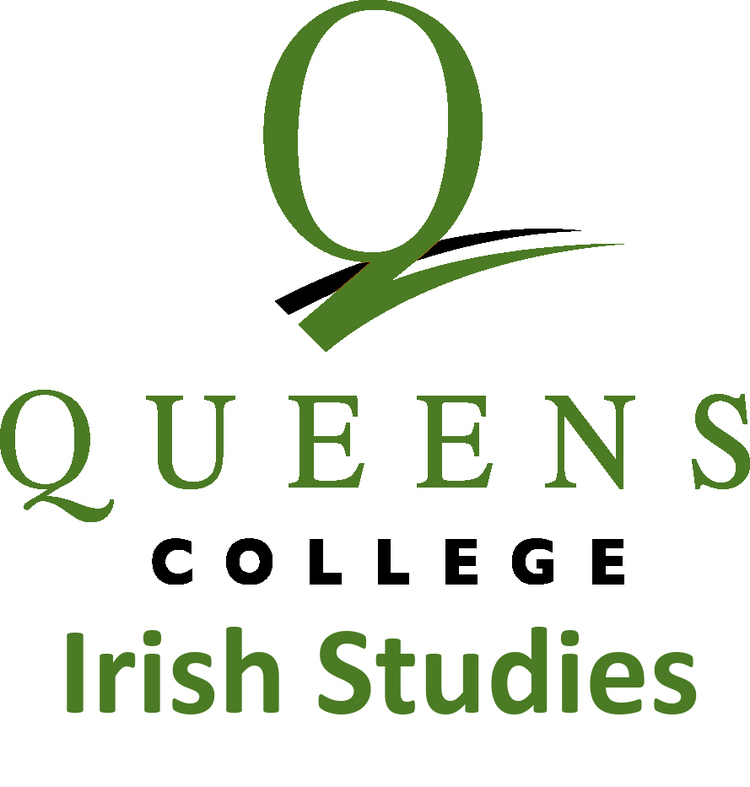The Irish Studies Program at Queens College recently celebrated its 40th anniversary, making it one of the oldest programs in North America devoted to the study of Irish history and culture. The presiding spirit behind its creation was Joseph S. Murphy—son of a labor organizer, constant champion of education for workers, later president of Queens College and chancellor of CUNY, and founder of the CUNY Law School. But its establishment can also be attributed to a desire on the part of Irish-American students inspired by the civil rights movement as well as news of atrocities being committed in Northern Ireland, to learn more about their own ancestors and home across the sea.
The first director of Irish Studies, beginning in 1973, was Dr. Kevin Sullivan, who was appointed to the English Department at Queens College and would serve the program for the next twenty-one years, in addition to editing The Recorder, the journal of the American Irish Historical Society. Equally important were the contributions of Maureen Waters, also in the English department, who created interdisciplinary courses that could speak not only to the Irish-American students at Queens College, but to all its diverse community of learners. As she wrote in her memoir, Crossing Highbridge: A Memoir of Irish America, many students of different races, ethnicities, and religions at Queens also experienced the kind of displacement suffered by the Irish; and while the Irish have largely moved away from these traumas, “It’s important to retain a sense of vulnerability, to remember where we came from, however disturbing that is,” in order to connect with others still going through those experiences today.
In 1984, Dr. Catherine McKenna, who had been on the Queens College faculty since 1974, assumed the directorship of the Irish Studies Program, and led it until 1997. A medievalist of great distinction, she brought a new dimension to the program through her specialty in court poets of the twelfth and thirteenth centuries, and interpretations of the Welsh tales "Pwyll" and "Manawydan." It was also under her leadership that the program benefitted from the hiring of highly gifted and well-loved adjunct professors, including Patrick McGough, Vincent Carey, James McHugh, and Kevin McKenny, all of whom continued on from predecessors such as Thomas Wilson (in the 1970’s and early 1980’s) and Paul Lonigan from Romance Languages.
Professor McKenna subsequently moved on to Harvard University, where she is now the Margaret Brooks Robinson Professor and Chair of the Celtic Languages and Literatures Department. Her commitment to Irish Studies at Queens, however, has continued, most evident in a recent talk she gave on campus, on the subject of her latest research, on St. Bridget.
Professor McKenna’s successor as chair of the program was Dr. Clare Carroll, who kept the vibrant tradition alive while also serving as Chair of the Institute for Irish-American Studies Faculty at Lehman College. Professor Carroll is the author of Exiles in a Global City: The Irish and Early Modern Rome, 1609-1783; Circe’s Cup: Cultural Transformations in Early Modern Writing about Ireland; Ireland and Post-Colonial Theory; and Richard Beacon's Solon his Follie co-edited with Vincent Carey. She is also the author of numerous articles on the subject of Irish literature and history, and is chair of the Renaissance Studies program at the Graduate Center and president of the Renaissance Society of America. While director, she established the CUNY study abroad programs in Ireland, and sponsored a series of events, including a student staging in 2008, and under the directorship of Susan Einhorn in the Drama, Theater, and Dance department, of J.M. Synge’s “The Playboy of the Western World.” Stephen Rea was brought in as Artist in Residence for that production, and spent a week bringing the great Irish dramatic tradition to the college’s students. Professor Carroll also sponsored a range of lectures and readings that showcased such luminaries as Paul Muldoon.
Clare Carroll was succeeded by Professor Jeffrey Cassvan of the English department, who specializes in Irish literature and theory and teaches an enormous variety of innovative courses that have introduced and deepened understanding of Irish fiction and poetry. Since 2014, Dr. Sarah Covington, from the history department, has helped guide the program, with courses on Irish (as well as Scottish) myth, memory, and culture. She is currently finishing a book on the problematic folkloric, literary, and historical afterlife in Ireland of the hated Oliver Cromwell, in addition to bringing in speakers who have discussed such topics as women and violence in early modern Ireland, and forthcoming talks on the Jewish community in present-day Dublin and the Irish in early Barbados.
Exciting developments are taking place as Irish Studies at Queens passes its forty-second year. With the revival of the student Irish Club, and a St Patrick’s Day lunch that brought in over 100 individuals in the Queens College community, we have begun to set our sights not only on Ireland and its history and culture, but—through our focused oral history project-- on the glorious tradition of the Irish and Irish-Americans in the borough of Queens. All are welcome, Irish and non-Irish alike, to celebrate a great country and the contributions of its people to our own.

